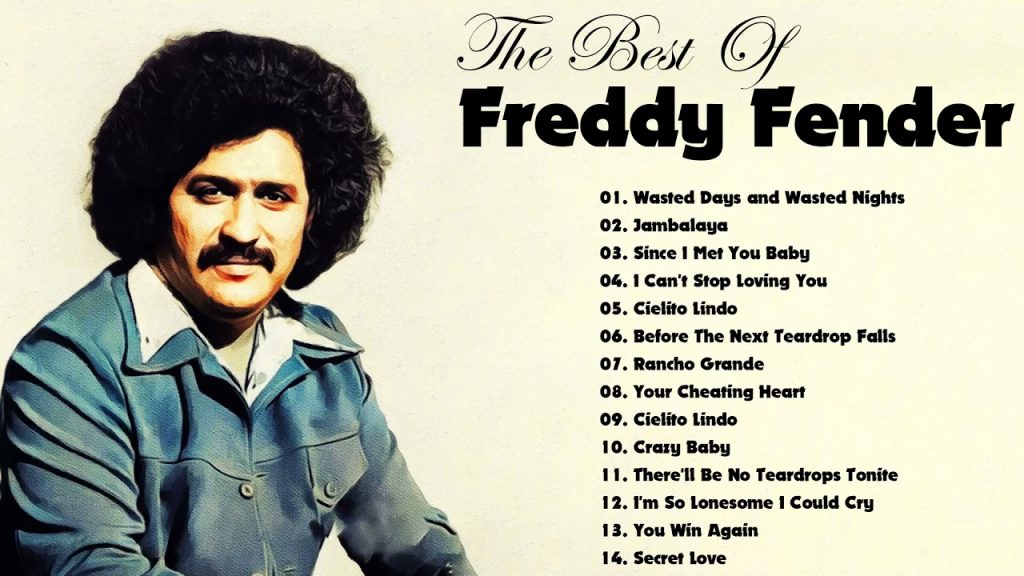
A Heartfelt Lament of Love’s Fragility
In the tapestry of music that has woven through the decades, few songs capture the bittersweet essence of love and loss as poignantly as “You’ll Lose a Good Thing” by Freddy Fender. Released in 1976, this song marked a pivotal moment in Fender’s career, resonating deeply with audiences and securing its place in the annals of classic country music. At the time of its release, the song soared to impressive heights on the charts, reaching No. 1 on the Billboard Hot Country Singles chart and crossing over to No. 32 on the Billboard Hot 100. It was a testament to its universal appeal and the raw, emotive power it held.
Freddy Fender, born Baldemar Huerta, was no stranger to life’s ups and downs. His music often mirrored his own tumultuous journey, colored by his struggles and triumphs. “You’ll Lose a Good Thing” is emblematic of this narrative—a heartfelt lament that speaks to anyone who has ever grappled with the uncertainty of love. Originally penned by Barbara Lynn in 1962, Fender’s rendition brings a unique blend of country soul and Tex-Mex flair, infusing the song with an authenticity that only he could deliver.
The story behind “You’ll Lose a Good Thing” is as compelling as the song itself. It tells of a vulnerable plea from a lover who senses impending heartbreak but holds onto hope that their beloved will recognize what they stand to lose. This theme of premonition and yearning is one that resonates across generations, tapping into the universal fear of losing something precious before realizing its true value. It’s a sentiment that echoes through time, reminding listeners of their own experiences with love’s delicate dance.
Fender’s performance is imbued with an emotional depth that draws listeners into his world—a world where love is both cherished and precarious. His voice carries a wistfulness that speaks volumes, capturing the listener’s imagination and transporting them to moments in their own lives when they faced similar crossroads. The lyrics are simple yet profound, each line carefully crafted to evoke imagery and emotion that linger long after the final note has faded.
Beyond its immediate emotional impact, “You’ll Lose a Good Thing” also holds a mirror up to societal norms surrounding relationships during its era. In a time when roles were more rigidly defined, the song’s message served as both a cautionary tale and an empowering reminder for individuals to recognize their worth within a relationship. It challenged listeners to reflect on their own circumstances and consider whether they were truly valued by their partners.
As we delve deeper into the song’s significance, it’s impossible not to acknowledge Freddy Fender’s unique ability to bridge cultural divides through his music. His Tex-Mex roots brought a distinctive sound to country music, blending traditional Mexican influences with contemporary country elements. This fusion not only set him apart from his peers but also broadened the appeal of his work, drawing in audiences from diverse backgrounds who found solace and connection in his songs.
For those who lived through the era of “You’ll Lose a Good Thing,” hearing it again evokes powerful memories—of first loves and heartbreaks, of moments when life felt both exhilarating and uncertain. It serves as a poignant reminder of times gone by when music had the power to shape our emotions and provide comfort during life’s trials.
In revisiting this classic track today, modern listeners can find new layers of meaning within its timeless narrative. The fear of losing something valuable remains as relevant now as it was then; perhaps even more so in our fast-paced world where relationships can feel fleeting. Fender’s soulful delivery continues to resonate, offering reassurance that while love may be fragile, it is also enduringly beautiful.
In conclusion, “You’ll Lose a Good Thing” stands as a testament to Freddy Fender’s remarkable talent and enduring legacy within the world of music. Its themes transcend time and culture, offering an introspective journey into the complexities of love that remains profoundly relatable across generations. Whether you’re revisiting this classic or discovering it for the first time, let yourself be swept away by its haunting melody and poignant message—a reminder that true love is indeed something worth cherishing.
